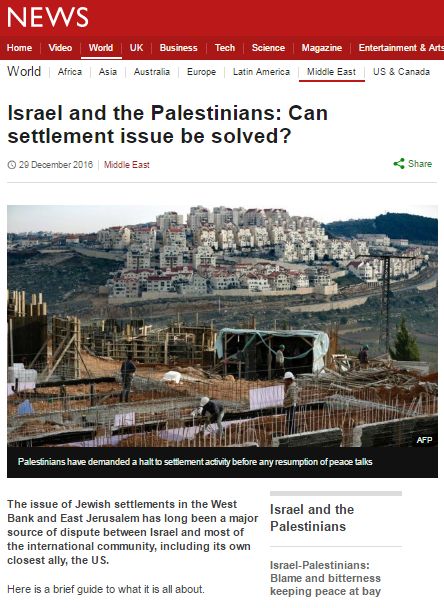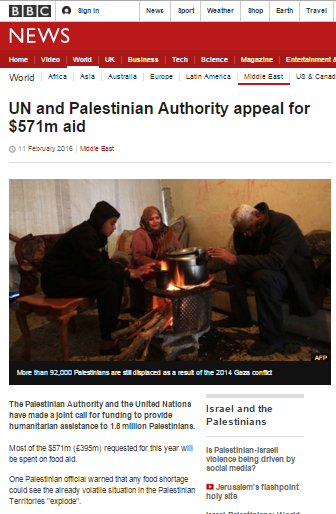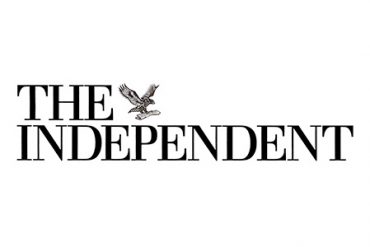As readers may have noticed, the BBC’s interest in the ongoing talks between Israel and the PLO seems to have waned dramatically in recent months. The cacophony of articles, backgrounders and Q&As produced around late July gave way to ‘snooze mode’ punctuated only by the occasional resurgence of interest in events such as the release of Palestinian terrorists from Israeli prisons in August and October. 
In early November, Yolande Knell produced a report on the subject of the Jordan Valley but recent related developments have been completely ignored by the BBC.
In early December the US Secretary of State arrived once again in the Middle East to propose a plan to address the issue of the Jordan Rift Valley and the related security concerns. According to reports, Kerry’s proposal included an IDF presence along the border with Jordan for a period of several years after the establishment of a Palestinian state, with future developments conditional on the security situation.
“The US security plan presented by Kerry last week reportedly provided for a series of crossings along the Jordan Valley border between the West Bank and Jordan which would be jointly controlled by Israel and the PA. The entire border itself, however, would remain under full Israeli control, with the IDF joined only by a symbolic Palestinian security presence. These arrangements would hold for many years, but not necessarily permanently, a Channel 2 report revealed, the implication being that in a future, new era of stability and mutual confidence, Israel might transfer more authority to the Palestinians.”
That proposal was however rejected by the Palestinian Authority.
“An American proposal that Israel station IDF soldiers in the Jordan Valley for the first 10 years after the signing of a peace deal with the Palestinians has garnered angry reactions from Palestinian leaders.
The proposal was made by US Secretary of State John Kerry in a meeting last week in Ramallah with Palestinian Authority President Mahmoud Abbas, the official Palestinian daily Al-Ayyam reported. […]
On Sunday, Abbas met with the American consul general in Jerusalem, Michael Ratney, and formally rejected the proposal, saying that the Palestinian position was “unequivocal”: no Israeli presence, though the Palestinians would tolerate a third-party military presence.”
No report on the plan proposed by Kerry or the PA’s rejection of it has appeared on the BBC News website.
On December 21st, the Arab League followed Abbas’ lead and also rejected the American proposal.
“The Arab League rejected on Saturday U.S. proposals that would allow Israeli soldiers to be stationed on the eastern border of a future Palestinian state.
Arab League chief Nabil Elaraby said no peace deal would work with Israeli presence in a Palestinian state.
Elaraby made the remarks during an emergency meeting held in Cairo on Saturday at the request of Palestinian President Mahmoud Abbas.”
BBC audiences have not been informed of that development either.
Other reports also suggest additional Palestinian refusals are in the offing.
“After a meeting with Abbas last week, an Arab League official said the PA president would not agree to even one Israeli soldier on the Palestinian-Jordanian border. He also indicated that Abbas refuses to acquiesce to a completely demilitarized Palestinian state, or recognition of Israel as a Jewish state, both key Israeli demands.”
Israeli officials have apparently described the US proposals as a good “basis for negotiations”.
With the BBC being obliged under the terms of its Charter to provide audiences with information which will “enable individuals to participate in the global debate on significant international issues”, the failure to report these important developments is clearly a very serious one indeed.
We can, however, anticipate that the BBC’s current ‘snooze mode’ will come to an abrupt end should the talks break down and that liberal sprinklings of the term ‘settlements’ will garnish the bulk of BBC reports ‘contextualising’ the subject.




